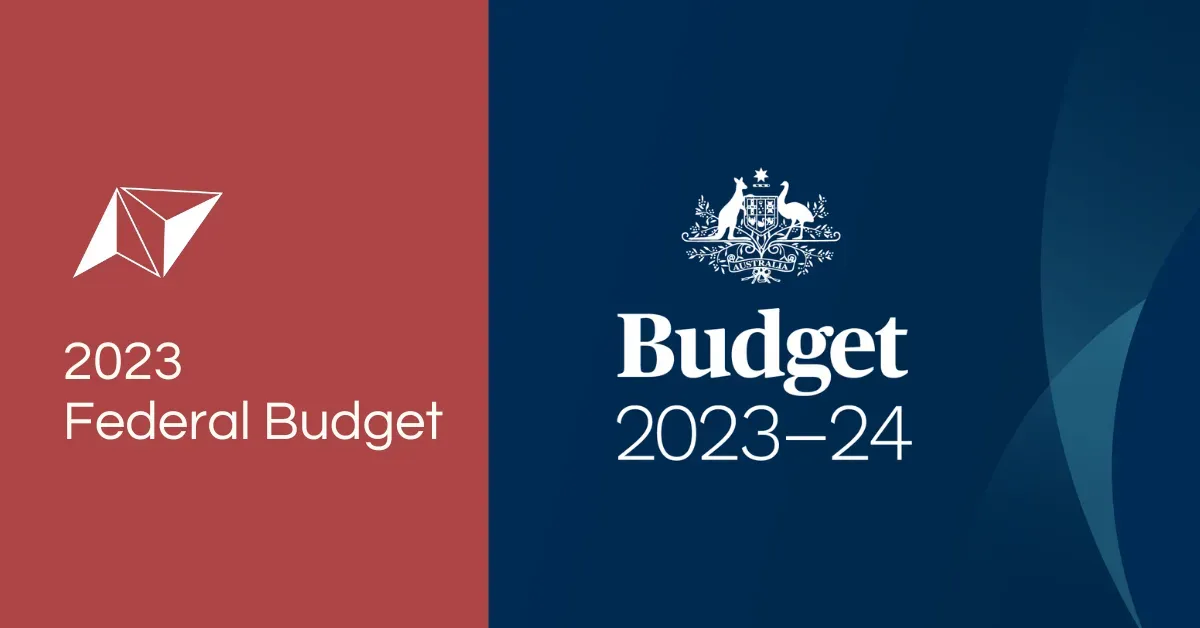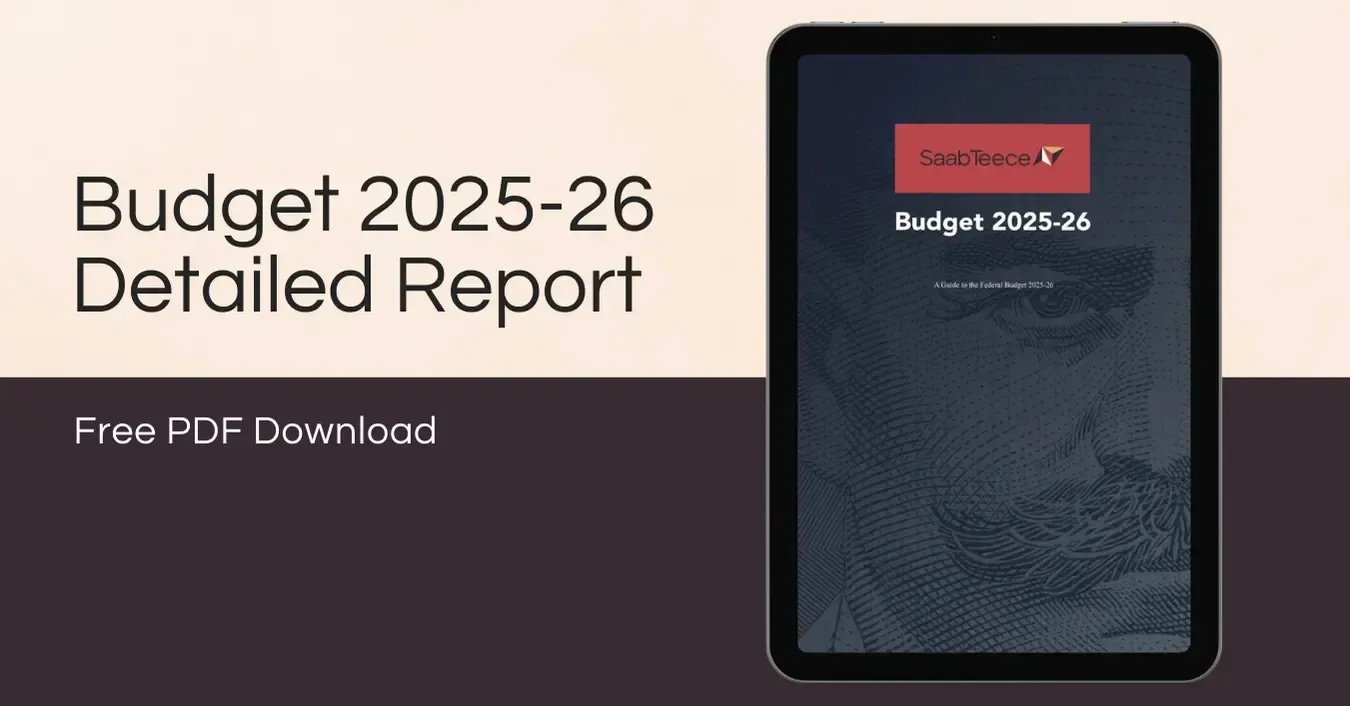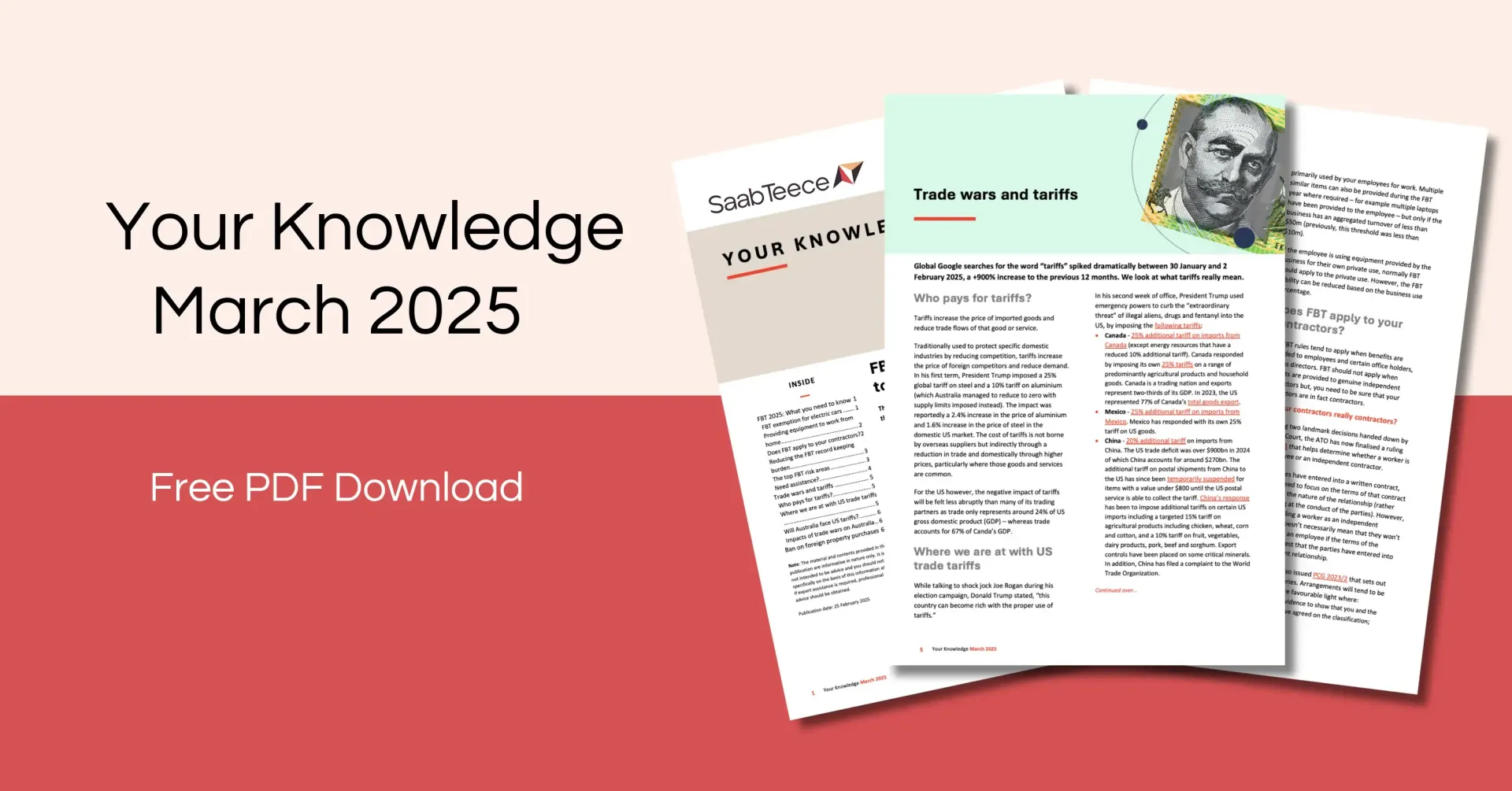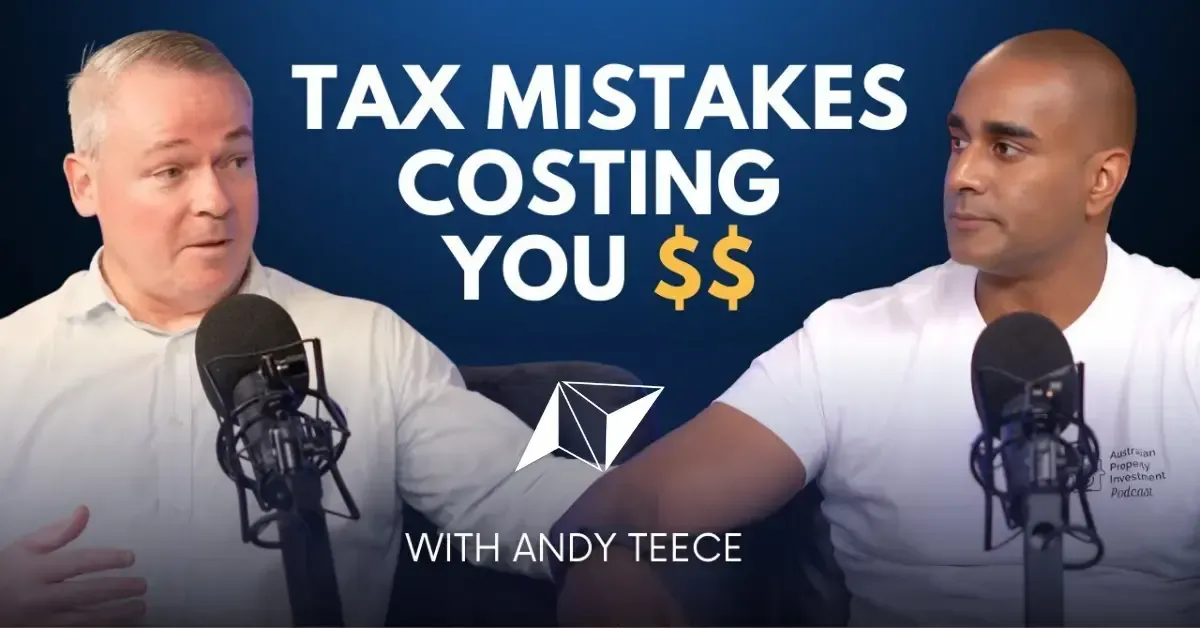2023 Federal Budget
On Tuesday, Jim Chalmers handed down his second budget. The budget aimed at cost-of-living relief without having a detrimental impact on inflation. The budget is forecast to end this financial year in surplus, the first time since 2007-08.
For a full summary of all the Budget measures, please download a copy of our Budget Report here.
Please remember that legislation must be passed before any of the measures are law.
Here’s a summary of key items:
Business
Small Business Instant Asset Write Off
As the temporary full expensing rules come to and end on 30 June 2023, the Government announces a $20,000 temporary small business instant asset write off for the 2023-24 financial year.
This will apply to businesses with an aggregated turnover of less than $10M.
$20,000 Small Business Incentives for Energy Efficiency
Small businesses will be entitled to a 20% bonus deduction for expenses that supports electrification and more efficient use of energy.
Up to $100,000 total expenditure will be eligible with a maximum bonus deduction of $20,000.
This incentive will be available to businesses with an aggregated annual turnover of less than $50M.
Assets must be first used or installed ready for use between 1 July 2023 to 30 June 2024.
Tax breaks for Build-to-Rent
For eligible new build-to-rent projects where construction commences after 7:30pm 9 May 2023:
Increased rate of capital works deduction (depreciation) from 2.5% to 4%.
Projects must be 50 or more apartments, made available to rent to the general public.
Dwellings must be retained under single ownership for at least 10 years.
Lease term must be at least 3 years for each dwelling.
Note that in some states and territories, there is also state tax incentives, such as a land tax reduction in NSW:
Super
‘Payday’ Super
From 1 July 2026 employers will be required to pay their employees superannuation guarantee entitlements on the same day as they pay salary and wages.
We expect to see development of existing payroll software to streamline this process.
For some businesses this may require cash flow planning well ahead of 1 July 2026, especially when we consider that Superannuation Guarantee will be increasing to 12% by then.
Super Fund non-arms length income & expenditure
The non-arm’s length income (NALI) rules prevent superannuation trustees artificially increasing the balance of the fund, and accessing preferential tax treatment on the higher amount, by failing to recognise expenses incurred by the fund provided by a related party at a reduced rate.
For example, your brother is a qualified accountant and does all your SMSF’s accounting work for free (that he would normally charge $5k for). This also commonly applies to builders/carpenters, real estate agents, financial planners where a related business provides free or discounted services to an SMSF.
The budget aimed to clarify that SMSFs and small APRA regulated funds that are taxable as NALI to twice the level of the general expense and that NALI will exclude contributions.
Additional 15% Tax on Super Earnings above $3M
An additional tax of 15% on earnings will apply to individuals with a total superannuation balance over $3 million (per individual, not fund total balance) at the end of a financial year from 1 July 2025.
The 15% additional tax will be applied to both realised and unrealised gains.
Individuals will likely have the option to pay the tax personally or have their superannuation fund pay it (similar to the administration of Division 293 Tax).
Individuals & Business
Energy Price Plan Relief
Targeted energy bill relief for households and small business:
- $500 to Individuals (Pensioners, Commonwealth Seniors Health Card Holders, Family Tax Benefit A & B recipients).
- $650 to eligible Small Businesses.
Lowering GST and PAYG Instalments
Normally Goods & Services Tax (GST) and Pay As You Go (PAYG) instalment amounts are adjusted using a GDP uplift.
The government has announced that a 6% uplift factor will be used for eligible businesses and individuals instead of the 12% that would have been applied.
ATO Compliance program
Small Business lodgment penalty amnesty
Small businesses with an aggregated turnover of less than $10m, will be able to access a lodgment penalty amnesty program. The amnesty will remit failure-to-lodge penalties for outstanding tax statements lodged in the period from 1 June 2023 to 31 December 2023 that were originally due during the period from 1 December 2019 to 29 February 2022.
Lowering tax and Super Liabilities
The ATO and Treasury will be funded to address the growth in tax and superannuation liabilities. The focus is on:
- High-value debts over $100,000.
- Aged debts older than two years where those taxpayers are either:
- Public and multinational groups with an aggregated turnover of greater than $10 million, or
- Privately owned groups or individuals controlling over $5 million of net wealth.
GST compliance Program Extended
The ATO will receive over $588m over 4 years to continue its work to improve GST compliance.
Full Summary
For a full summary of all of the Budget measures, please download a copy of our Budget Report here.
Please remember that legislation must be passed before any of the measures are law.
As always, do not hesitate to contact us.
Kind regards,
SaabTeece
Recent Posts

SaabTeece
Liability limited by a scheme approved under Professional Standards Legislation.
Shop 2, 17-25 William St, Earlwood, NSW 2206 Australia








